The College of Science hosted the third annual Entrepreneurship Workshop on July 25, 2025 at the Warren Conference in Ashland, MA. The workshop demonstrates growing recognition of the importance of entrepreneurial skills in scientific careers.
Thirty-one science students participated in the comprehensive workshop specifically designed to prepare the next generation of researchers to translate their discoveries into practical solutions and successful ventures. The diverse group included incoming first-year students alongside current undergraduate and graduate students, all eager to develop skills beyond the laboratory.
The invigorating day-long program, facilitated by Training Path, combined leadership development with practical business training, culminating in an exciting pitch competition complete with a judging panel and team prizes.
Morning Focus: Leadership Development
The morning session concentrated on building essential leadership capabilities through interactive activities. Students engaged in communication and teamwork exercises designed to challenge their problem-solving abilities in unconventional ways.
One particularly creative exercise required students to organize themselves into groups by card number (unknown to the students) without any verbal communication—a deceptively simple task that proved both challenging and enlightening for participants.
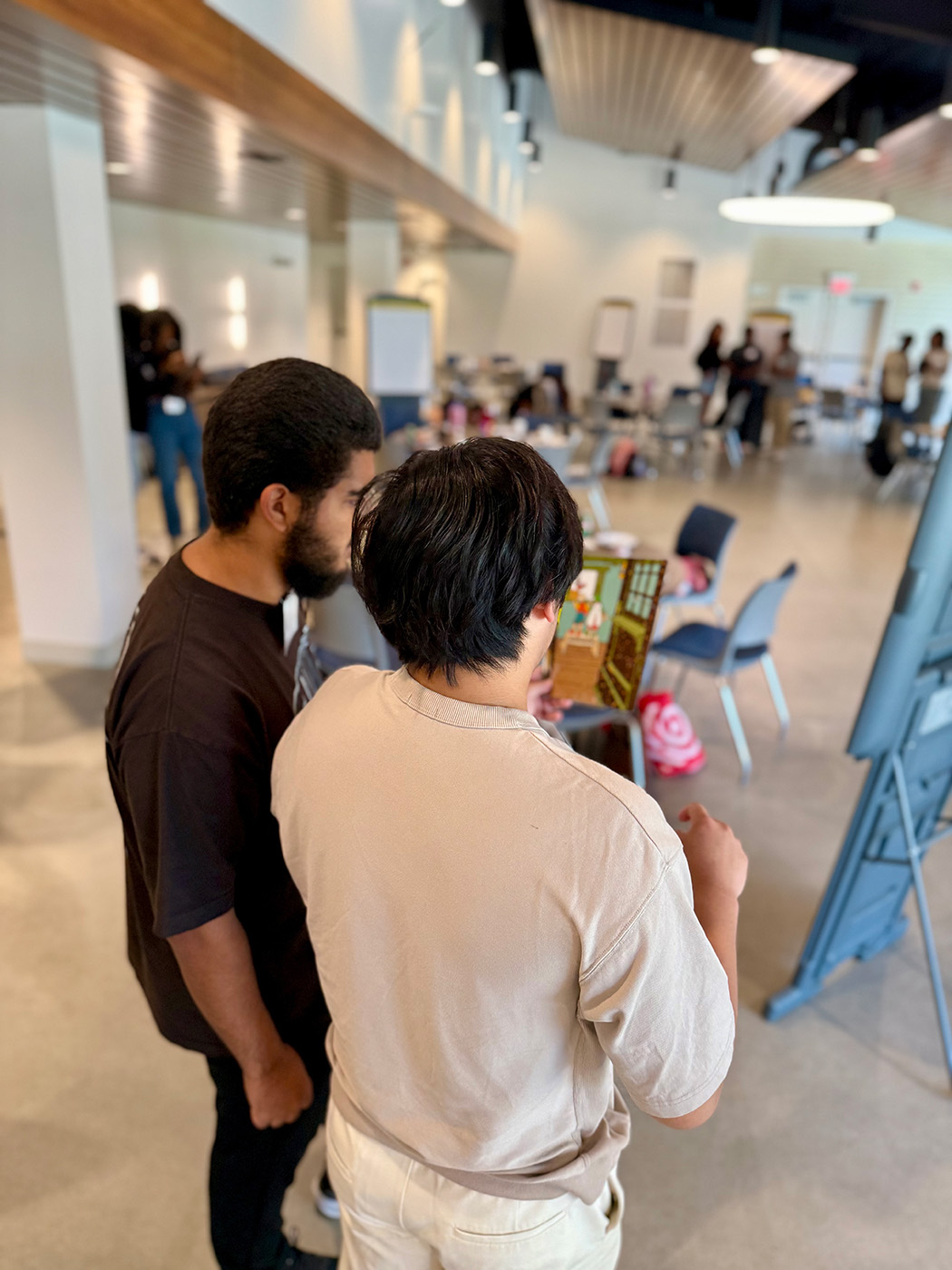
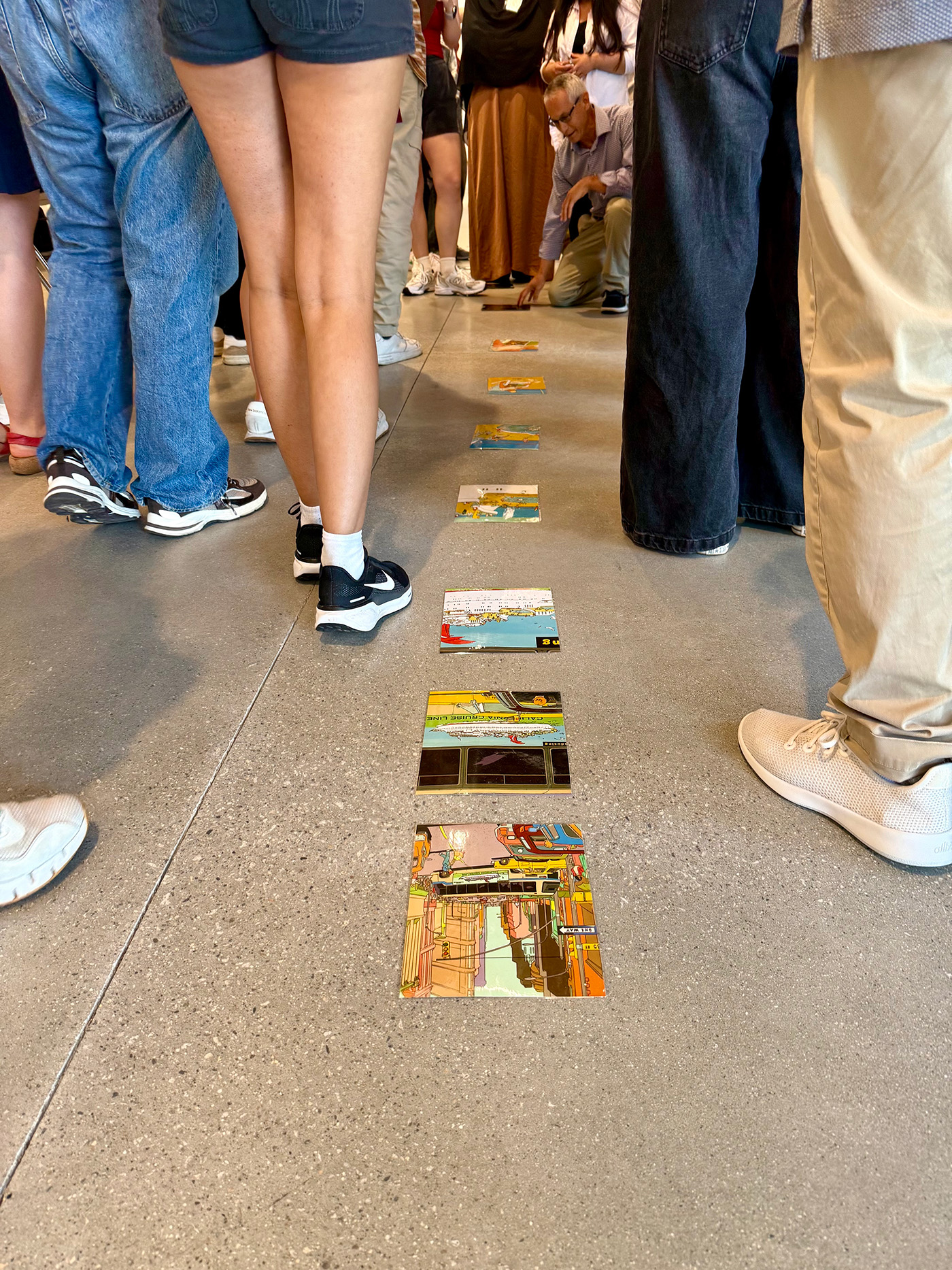
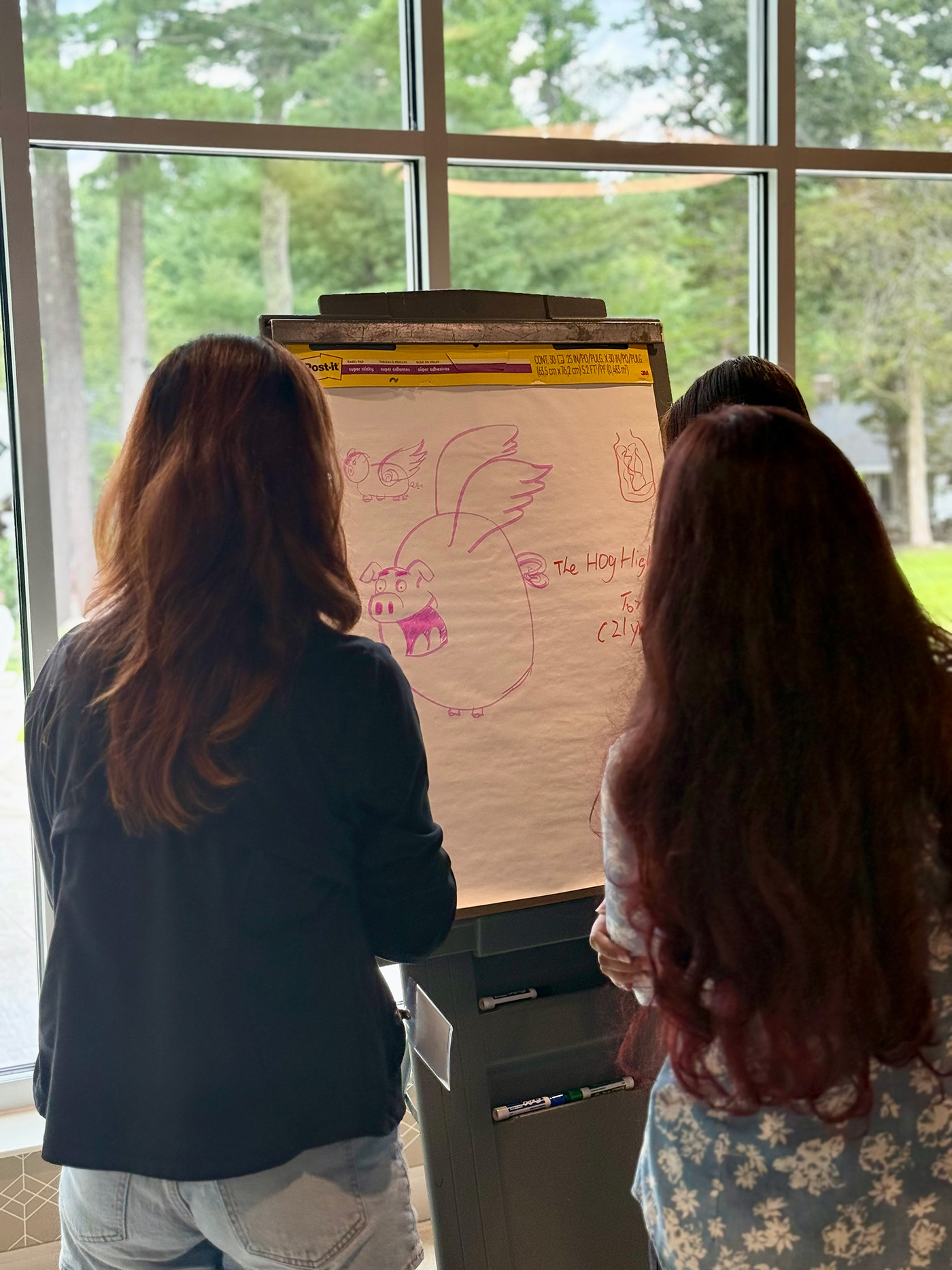
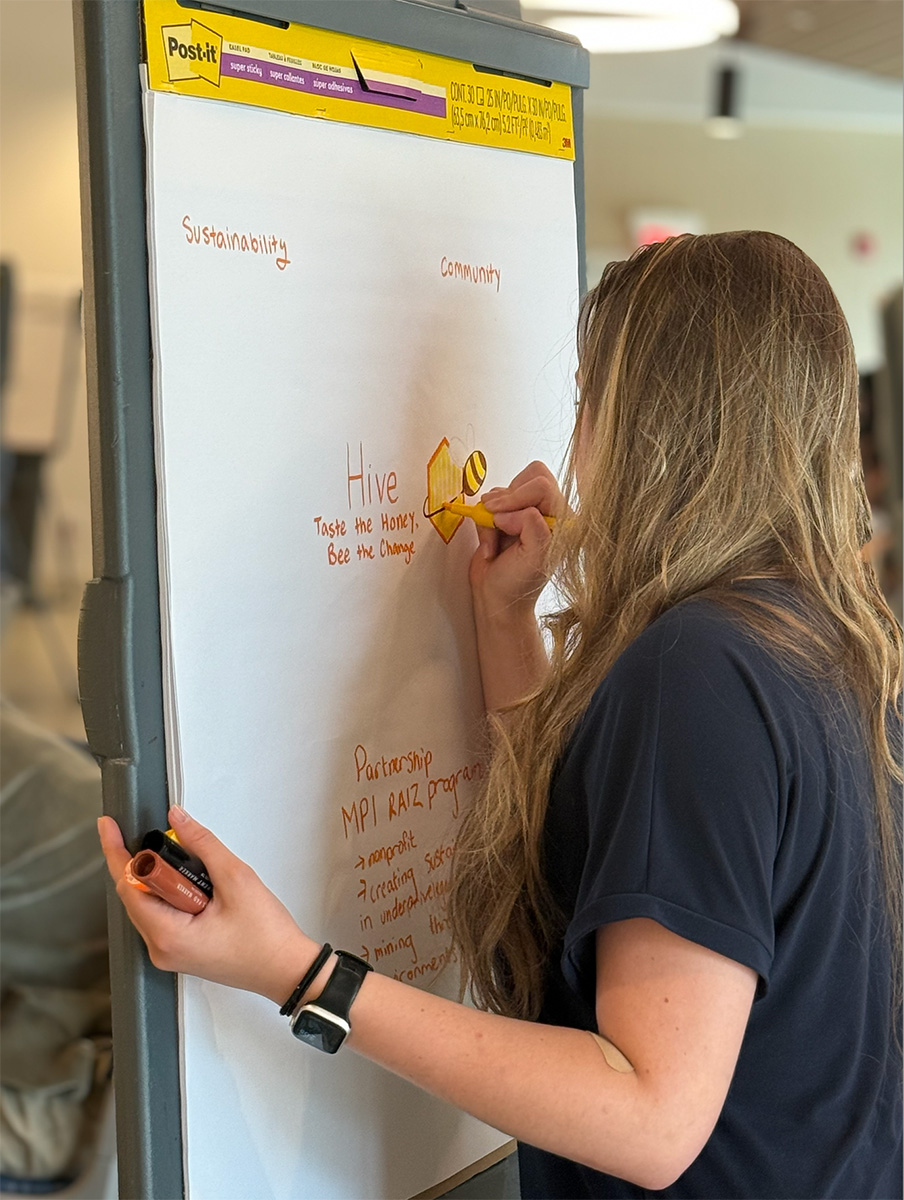
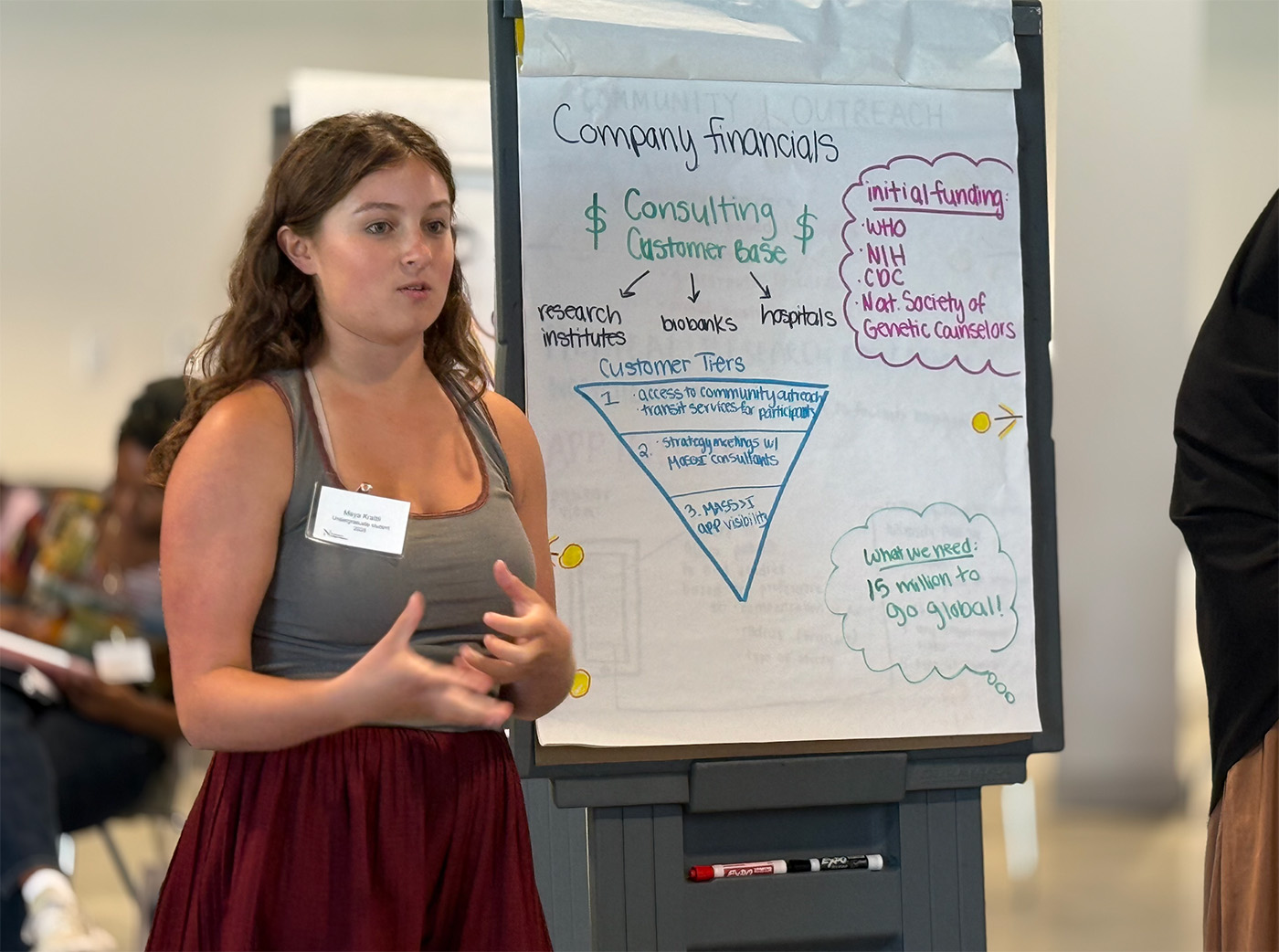
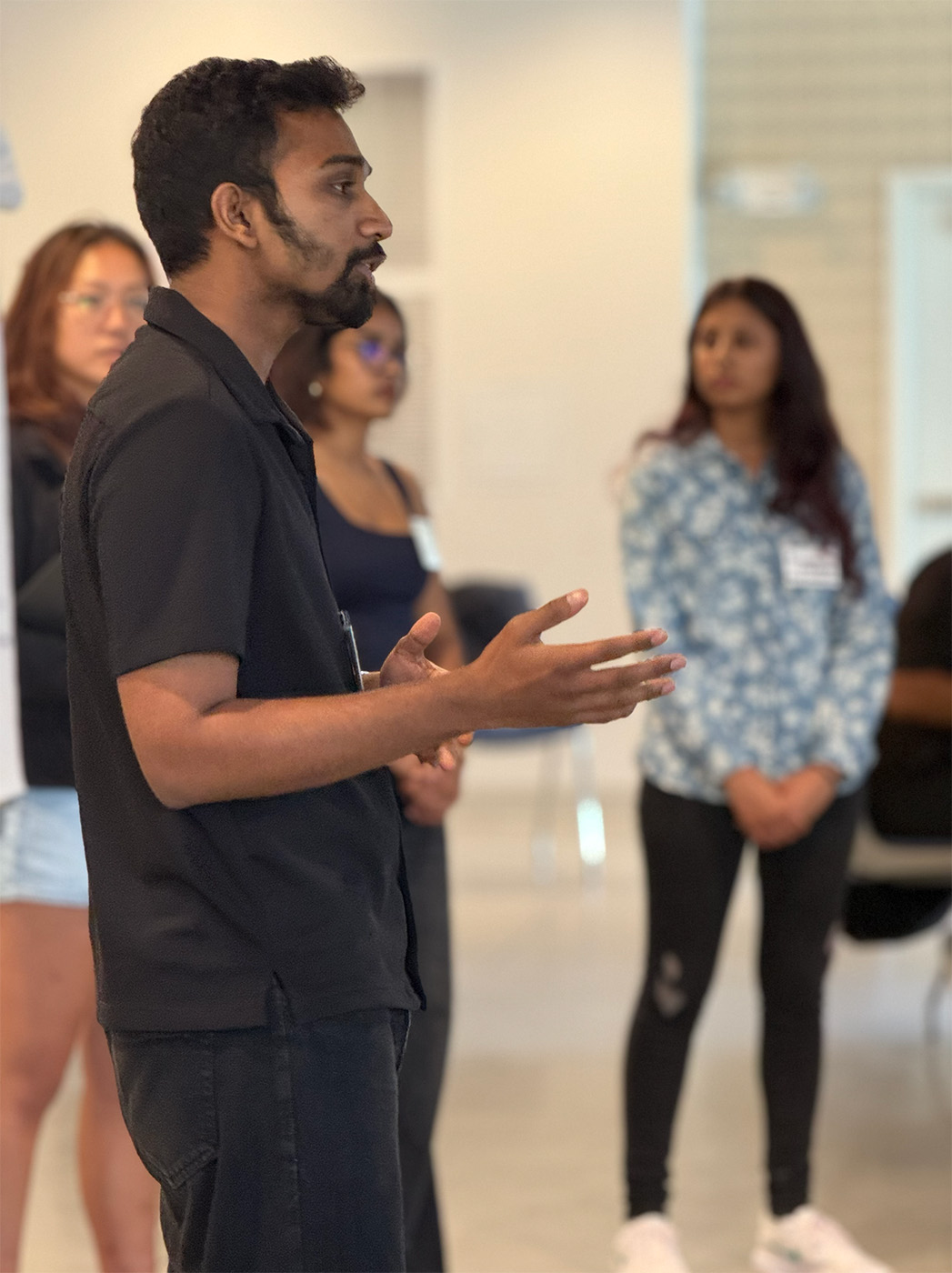


Afternoon Challenge: From Concept to Competition
The afternoon shifted focus to practical application of business principles. Students were divided into teams and tasked with creating a brand and product or service that addressed real-world challenges. Each team developed both a visual identity through logo design and a compelling two-minute elevator pitch.
The workshop’s centerpiece was the development of business plans, which teams presented in 3-5 minute pitches to a panel of judges who provided professional feedback and follow-up questions. The competitive element was enhanced by peer evaluation, with students scoring each other’s presentations.
Congratulations to the winners of the Pitch Competition!
1st place: Royal Jelly
Honey-based sports supplements
- Cailin Cronin, Biochemistry
- Dea Gupta, Biology
- Ersi Dake, Psychology and Business Administration
- Anmoldeep Chahal, Physics
- Miles Zuercher, Physics
2nd place: High Five
Lab Mentor, an AI lab training system
- Athena Wu, Behavioral Neuroscience
- Leonardo Zhao, Computer Science and Behavioral Neuroscience
- Faateh Mohammad, Biology
- Dylan Fei, Biochemistry
- Ahmed Othman, Biochemistry
3rd place: Darwin
Genetically modified seeds
- Shania Maillet, Behavioral Neuroscience
- Lakishmikanth Reddy Chavva, Bioinformatics
- Nitish Kumar Srinivasan, Biotechnology
- Manju Selvakumaran, Bioinformatics
- Harumi Garrison, Mathematics
Crowd Favorite: MASS-I
“Stronger Together” – making research study participation more diverse
- Maya Krattli, Marine Biology
- Abigail Demosthene, Behavioral Neuroscience
- Siima Machayo, Behavioral Neuroscience
- Samantha Pierre, Data Science and Behavioral Neuroscience
- Isabel Elias, Cell and Molecular Biology
[I] loved the leadership part and the pitch aspect. This was my first time involved in anything entrepreneurial and it was a great introduction!
Workshop Participant (from feedback survey)
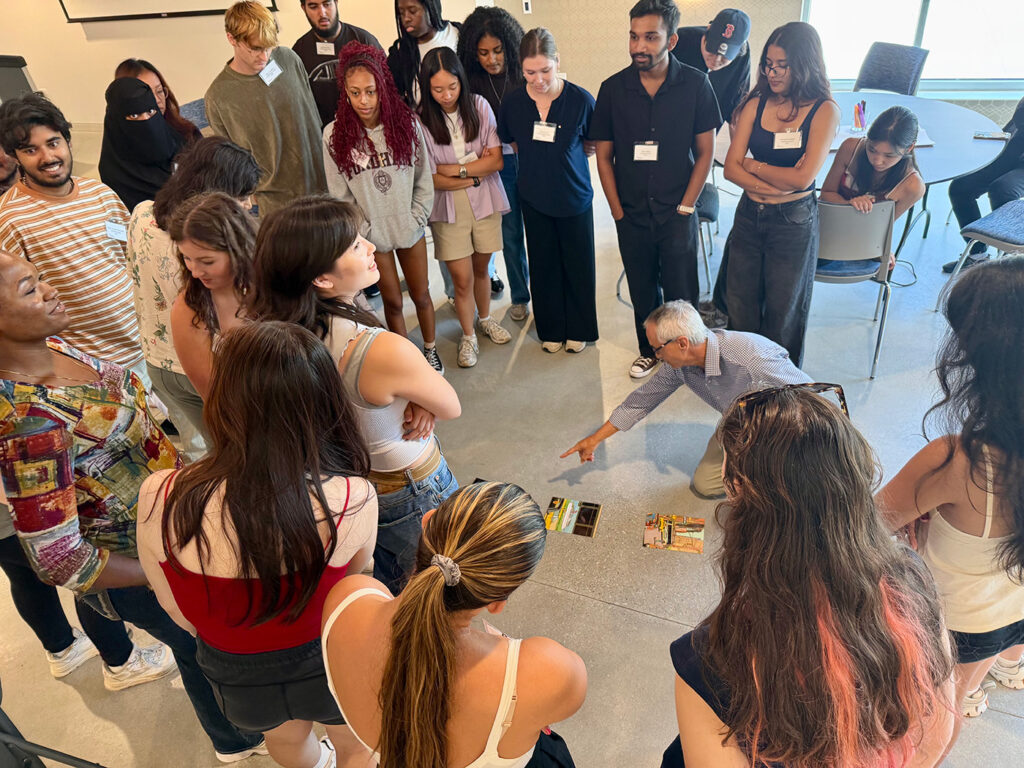
Northeastern University and MIT are co-hosting the National Organization for the Professional Advancement of Black Chemists and Chemical Engineers (NOBCChE) Collaborative Conference on June 26-28.
The goal of the NOBCChE Collaborative is to build robust career pipelines, fostering diversity, mentorship, and inclusion in academia and industry. By connecting students with mentors, professionals, and leaders, this event amplifies talent, equity, and opportunity.
The theme this year is Rising Together: Amplifying our Ecosystem of STEM Excellence and features engaging and insightful sessions and panels led by brilliant scientists and industry experts.
Highlights from program include:
- Welcome remarks from Dr. Penny Beuning, chair and professor of chemistry and chemical biology, Dr. Tim Swager, professor of chemistry at MIT, and Dr. Tyrslai Williams-Carter, assistant dean of Mentoring, Research, and Education in the Pinkie Gordon Lane Graduate School, and professor of research in the Lutrill and Pearl Payne School of Education at Louisiana State University
- Opening remarks from Dr. Hazel Sive, dean, College of Science
- Keynote address Communicate, Connect, Lead: Building a Brand that Stands Out by Dr. Devin Swiner – senior scientist at Merck & Co. and advocate for scientists of color
- Career Panel moderated by Dr. Otonye Braide-Moncoeur, professor of chemistry and chemical biology featuring a diverse panel from leading organizations in chemistry and biotechnology industry including Vertex Pharmaceuticals, Takeda, and Insmed, Inc.
- Graduate Student Panel, featuring Estelleta Hackshaw, a PhD Candidate working in the Ondrechen Research Group and Vishnu Nair, student in the Biotechnology program.
Attendees will also have the opportunity to tour Northeastern’s Makerspace and hear about cutting-edge research from undergraduate, graduate, and postdocs in a poster competition.
Northeastern’s involvement in this Collaborative has been extremely valuable for our faculty, staff, and students, in that we gain access to a network of support and expertise in a myriad of professional areas and career stages.
Dr. Penny Beuning, chair and professor of chemistry and chemical biology
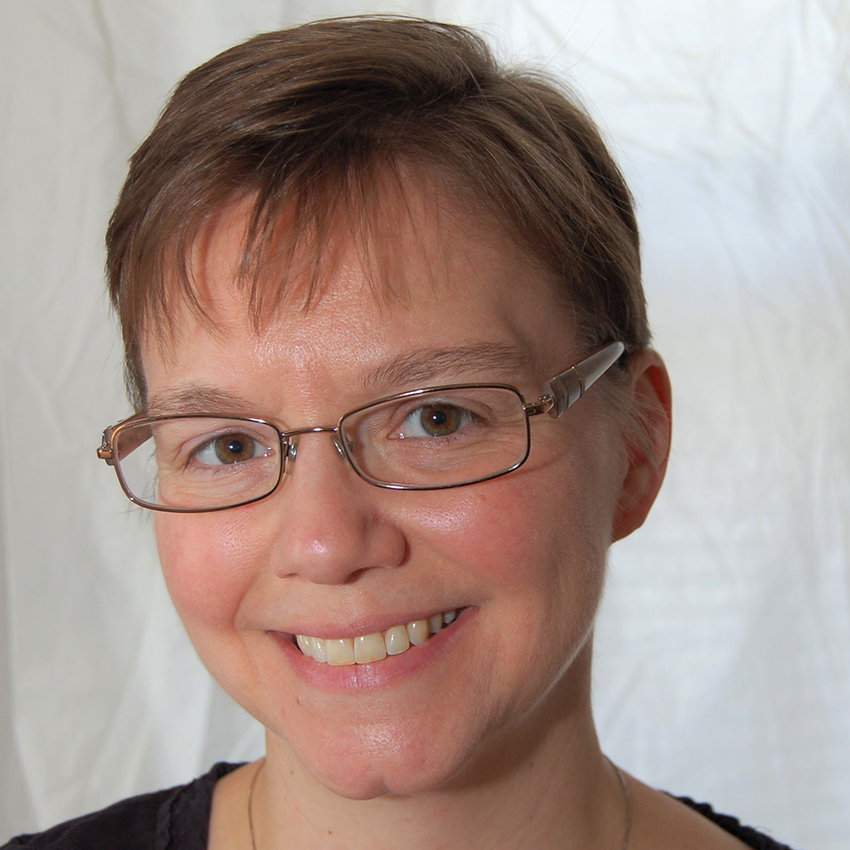
On May 7, 2025, Northeastern University’s Boston campus hosted the inaugural NU Cross-College Magnetics Center Workshop in the Raytheon Amphitheatre at the Egan Research Center. The event brought together approximately 60 participants from NU’s Boston, Burlington, and Portland campuses.
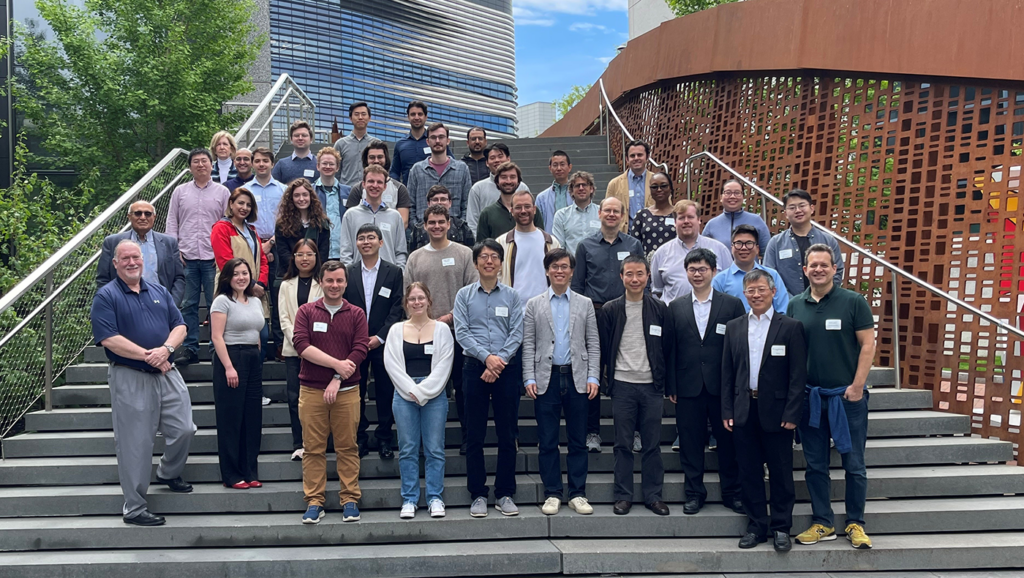
The NU Cross-College Magnetics Center, composed of 22 members from the College of Science, the College of Engineering, the Kostas Research Institute, and the Roux Institute, is dedicated to advancing magnetic science and technology through interdisciplinary collaboration and innovation.
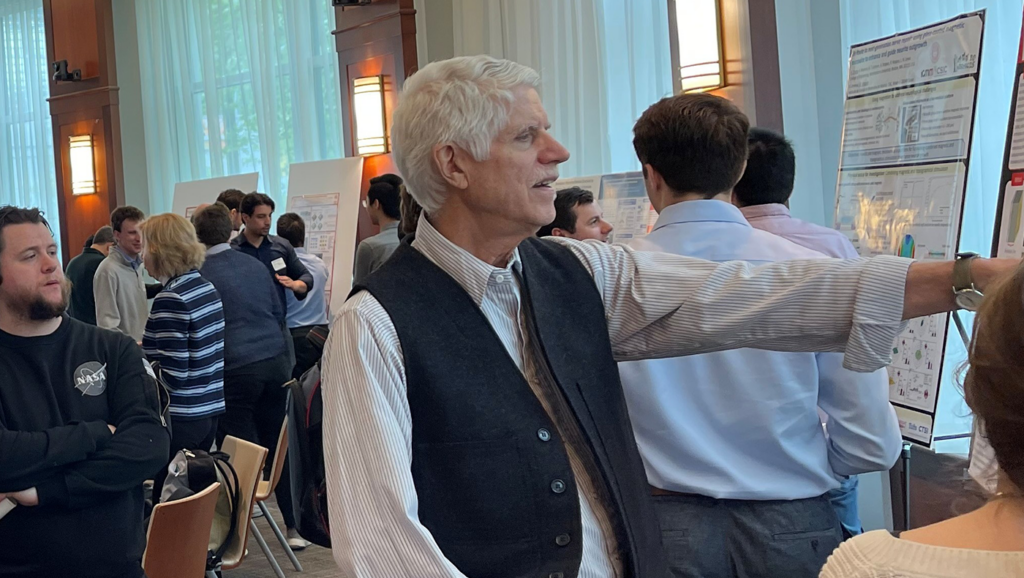
The workshop featured four insightful tutorials by Laura Lewis, Ryan Koppes, Alberto De la Torre Duran, and George Hadjipanayis, along with two engaging technical talks from Xufeng Zhang and Paul Stevenson. A total of 29 posters were showcased across two sessions, with six Best Poster Awards selected by a panel of five judges.
A lively and thought-provoking career panel, moderated by Kin Chung Fong, featured discussions with panelists Greg Fiete, Zac Perry, Paul Stevenson, and Srinivas Tadigadapa.
This successful event was made possible through the generous support of the College of Science, the College of Engineering, AJA International, Quantum Design, and the Journal of Magnetism and Magnetic Materials.
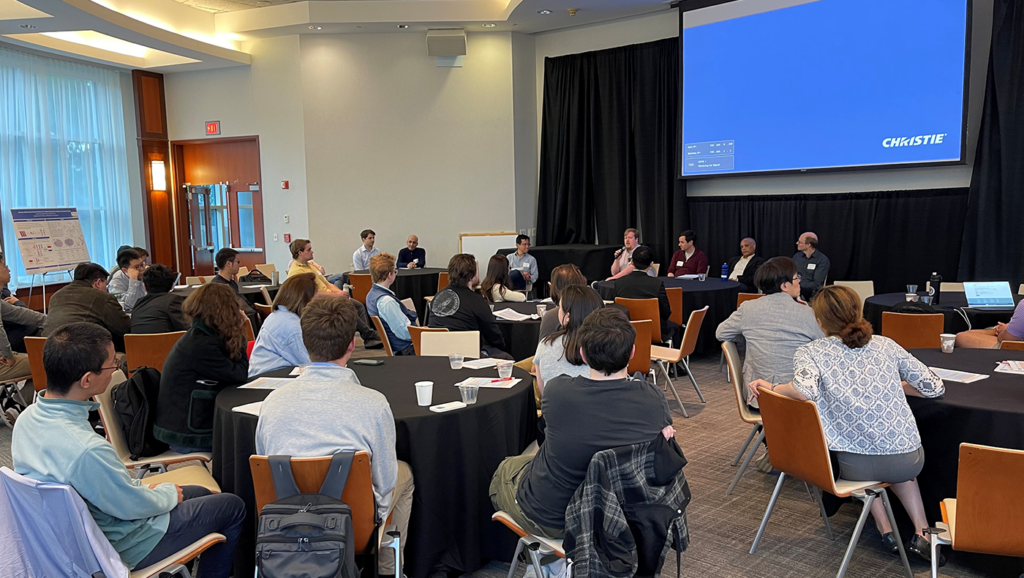
This fall, we celebrated the outstanding research opportunities offered to our undergraduate students, made possible through generous donors and initiatives like the new Dean’s Undergraduate Research Scholars program which aims to immerse students, as early as their first year, in the exciting discoveries being made in the College.
Students (listed below) presented the important research they’ve been working on with their faculty mentors to families, friends, faculty, staff, and donors during a special showcase. We’re immensely proud of our exceptional undergraduate students!
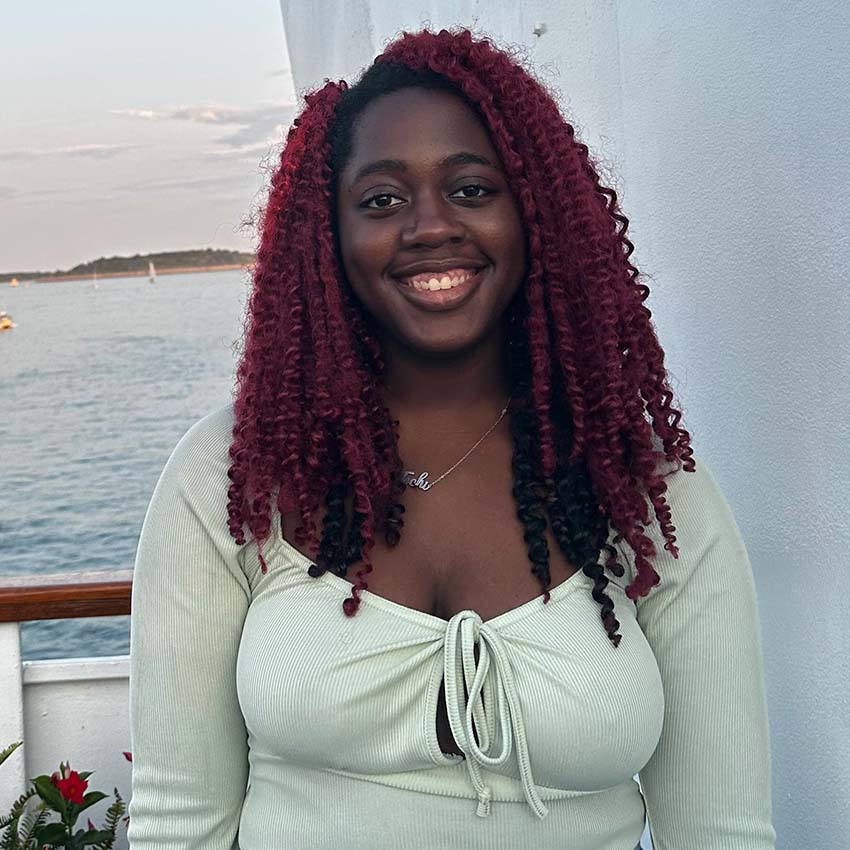
Tochi Chukwuemeka (she/her/hers), Behavioral Neuroscience and Design
Program: Dean’s Undergraduate Research Scholar
Presentation: A Little Bit About Me
Center: Center for Translational NeuroImaging
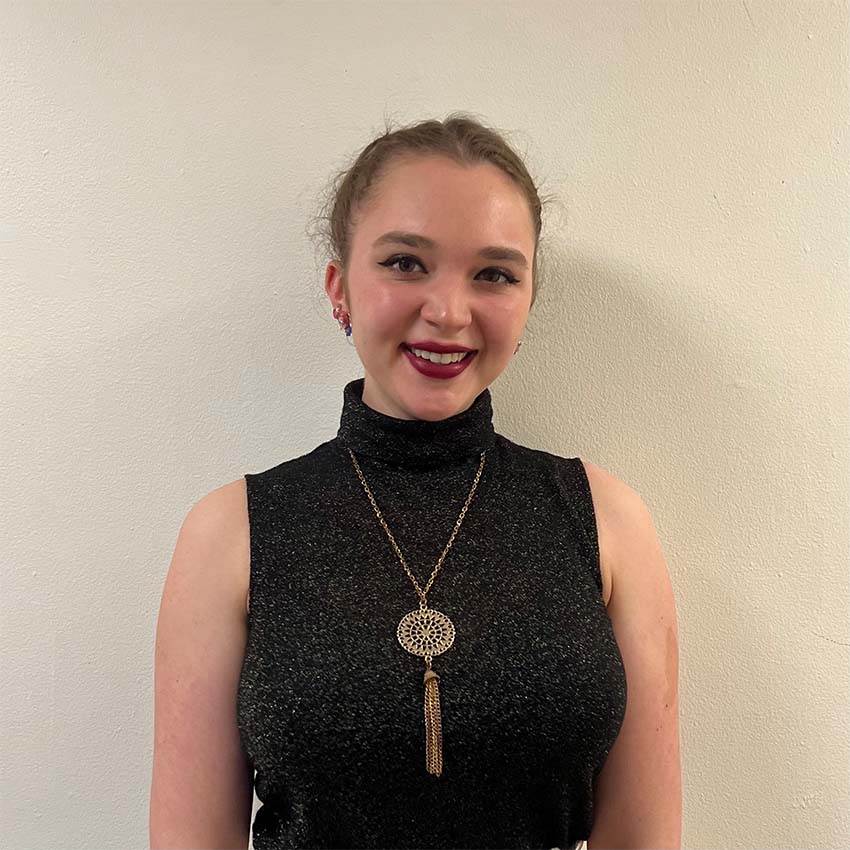
Nicole Mongillo
Program: Halverstadt Family Summer Internship Program for the Marine Science Center
Presentation: Exploring Patterns of Yield Variability across Spatial Scales in Costa Rican Coffee Crops
Lab: Garcia Lab

Charlotte Roth
Program: 2024 Jill Barrett Research Scholar
Presentation: The influence of size on C. elegans running response to alternating current
Lab: Young Lab
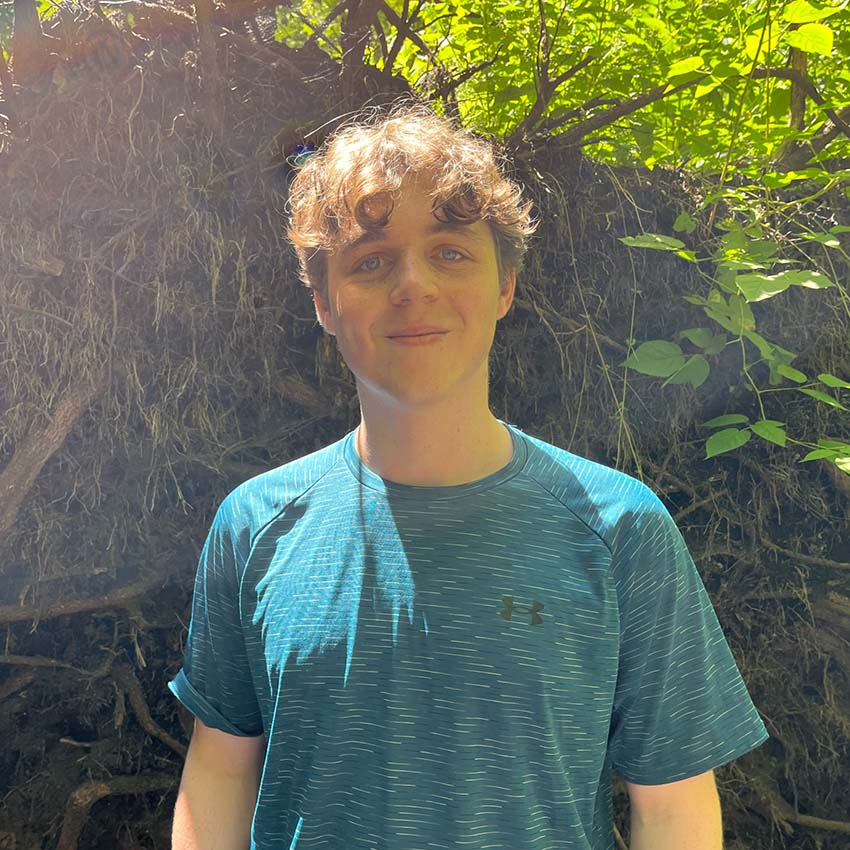
Zachary Anderson
Program: 2024 Jill Barrett Research Scholar
Presentation: Enhancing Coral Reef Health: Advanced Monitoring Approaches
Lab: Vollmer Lab
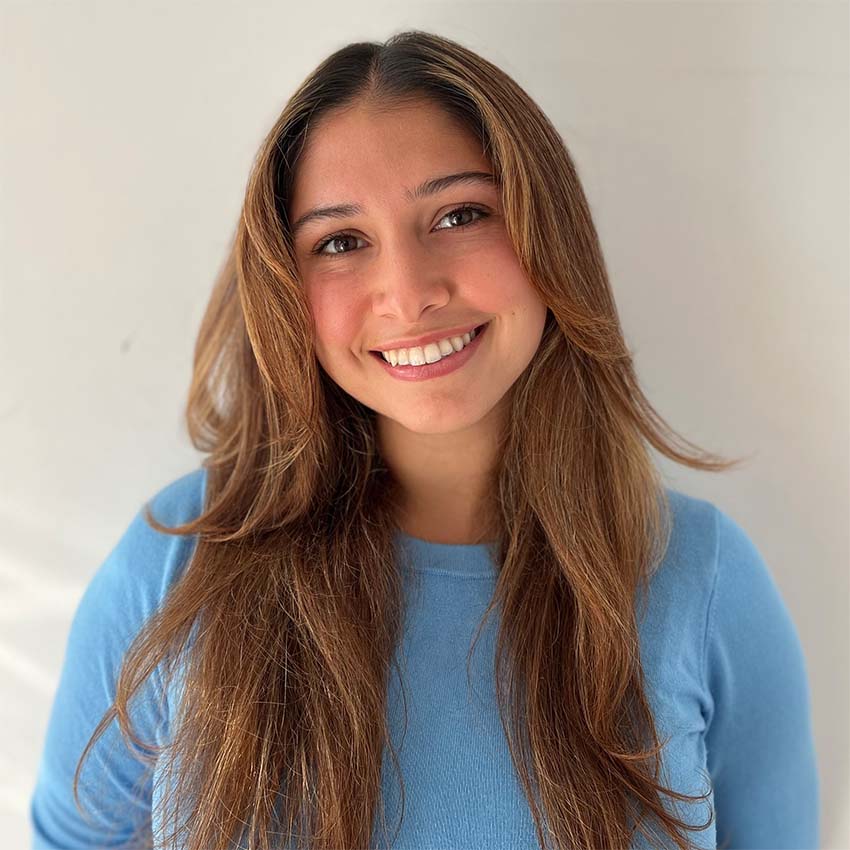
Bita Adel-Zadeh
Program: Shapazian Research Co-op
Presentation: Characterization of Tau Species in Plasma
Lab: Lei Liu, MD, Ph.D: Laboratory of Neurology at Harvard Medical School/Brigham and Women’s Hospital
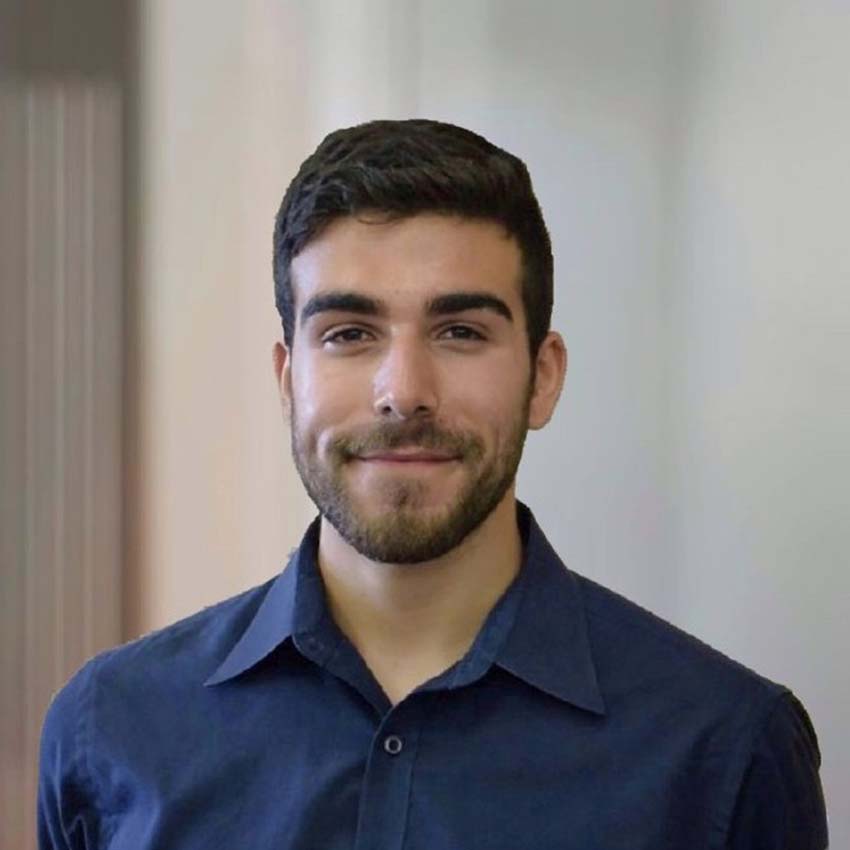
Jasper Olson
Program: Paul & Grace Ward Martinez (‘48) Research & Co-op Fund
Presentation: Navigating the Morally Distressing Storm: Adapting healthcare concepts to investigate climate change complexity and cognitive-emotional tensions
Lab: Sustainability and Social Change Lab
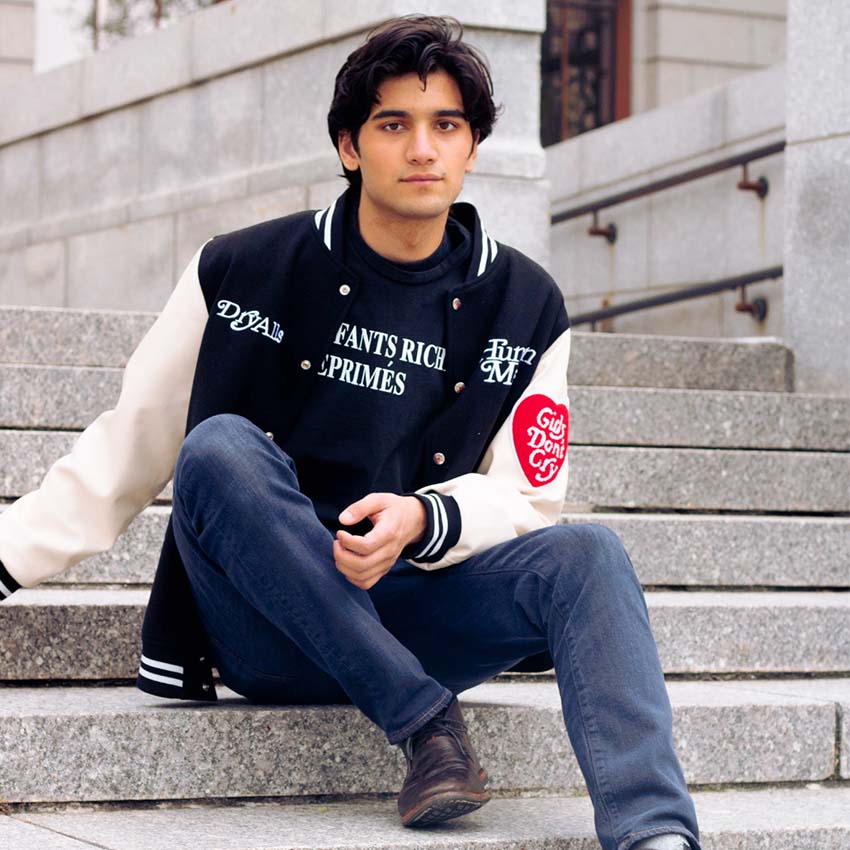
Saad Mohsin
Program: Robert E. Matz Scholar
Presentation: Nerve Dependency of Limb Regeneration in Ambystoma Mexicanum
Lab: Monaghan Lab
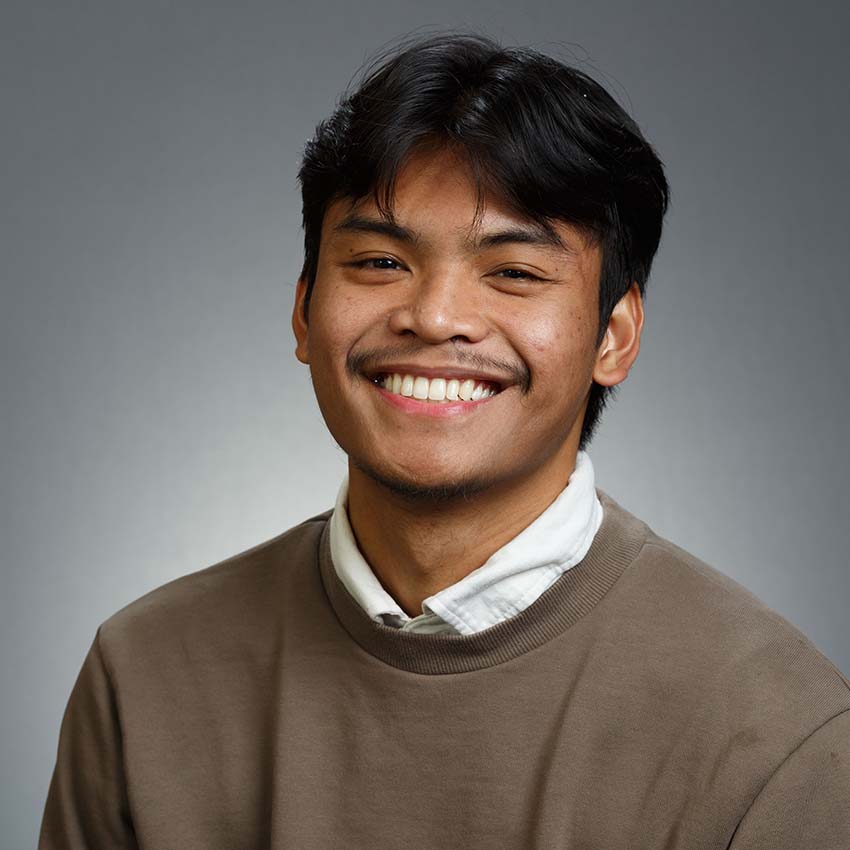
Migue Van Louis Darcera
Program: Andrew I. Schafer, M.D. Co-op Research Fund
Presentation: Investigating a novel association between pulcherrimin and teichuronic acid in Bacillus subtilis biofilms
Lab: Chai Lab

Zachary Greenfield
Program: Northeastern Summer Math Research Program Research Experience for Undergraduates
Presentation: An exploration of categorical structures
Program Lead: Prof. Toledano Laredo
This past July 13-14, Aaron B. Daniels, associate teaching professor of psychology, took 22 undergraduate students to run and present papers at a Psychology & the Other Conference, held at Northeastern’s London campus. The students were part of Professor Daniels’s Psychological Humanities at Northeastern University (PH@NU) Workgroup and were generously supported by the College of Science Dean’s Fund.

The conference was a collaboration between Northeastern and Boston College’s Center for the Psychological Humanities and Ethics with the support of Duquesne University’s Clinical Psychology Department and the Department of Psychosocial and Psychoanalytic Studies at the University of Essex, Colchester.
Over 200 scholars and practitioners attended this cross-disciplinary gathering offering over 90 papers and sessions covering diverse perspectives. The conference had an unprecedented number of undergraduates attending—over 50! Students participated in every aspect, from finding speakers to present and helping run the various track to presenting their research and networking with new leaders in the field—an incredible learning experience all around!

Professor William Sharp, Psychology, brought his Dialogue of Civilizations class as well as presented a paper of his own and Professor Laura Dudley, in her role as Director of Northeastern’s Mindfulness Minor, brought a student to present research as well as presenting her own work.
Northeastern Boston students presented over 19 posters in a wine and cheese reception with the evening finishing with opera sung by NU London’s Emily Noon and accompanied by Professor Bianca Serwinski, the London Chair for the conference. Northeastern London students were gracious hosts and presented their work at the conference.

Photos courtesy of “Psychology & the Other” Conference held at Northeastern University, London and Laura M. Daniels.
On June 3-7 2024, the Physics department and the College of Science hosted the 2024 edition of the Large Hadron Collider Physics conference (LHCP) on our Boston campus. This is one of the major international conferences in particle physics at colliders (the Large Hadron Collider and beyond). This conference is held annually on alternating continents, with 2024 being the designated year of the Americas. Prof. Emanuela Barberis, a member of the physics department experimental particle physics (EPP) faculty, successfully bid to host the 2024 edition, LHCP2024, on the Northeastern University Boston campus.
The LHCP2024 program contained a detailed review of the latest experimental and theoretical results on collider physics, with many final results from the past run of the Large Hadron Collider at CERN, a first glimpse of the upgraded accelerator and detector operation in current run, and discussions on further research directions within the high energy particle physics community, both in theory and experiment.
The main goal of the conference was to provide intense and lively discussions between experimenters and theorists in such research areas as the Standard Model Physics and Beyond, the Higgs Boson, Heavy Quark Physics and Heavy Ion Physics as well as to share recent progress in the high luminosity upgrades of the LHC and future collider developments.
At Northeastern University, Prof. Barberis conducts research with her EPP faculty colleagues (Profs. Johan Sebastian Bonilla Castro, Toyoko Orimoto, Louise Skinnari, and Darien Wood) on one of the detectors at the CERN LHC in Switzerland, the Compact Muon Solenoid (CMS) detector.

Co-chaired by Prof. Emanuela Barberis and Prof. Toyoko Orimoto, the conference was opened with a welcome address from Dean Hazel Sive. All EPP faculty, as well as several experimental and theoretical faculty experts from the greater Boston area were actively involved in the local organization.
The LHCP2024 conference attracted approximately 450 registrants from more than 20 countries, with a plenary series of 40 talks, more than 200 parallel talks, and a contributed poster session with approximately 100 posters from graduate and undergraduate students from around the world.
A total of 10 of the presentations at the poster sessions were made by graduate students from the Northeastern University CMS group, whom the experimental particle physics faculty advise, and by undergraduate students that the faculty support – from NSF and DOE research grants – to work at CERN as Northeastern University co-op students.
The Northeastern CMS group has engaged approximately 40 undergraduate students in Co-op research at CERN, since 2004, and continues to do so at the increased rate of approximately 5 per year in recent years.

In addition to the many scientific sessions, the conference included a panel on the future of high energy particle physics, and public events on outreach and science communication, with science writers in attendance, including New York Times science writer Katrina Miller. The conference provided an invaluable learning and networking opportunity for students interested in the field of particle physics at Northeastern University and around the world, and it showcased the prominent role in global research of Northeastern University physics faculty and students.

Northeastern University professor Maria Ivanova is heading to South Korea with hopes of seeing an international treaty that aims to put the brakes on plastic pollution across the globe.
Ivanova, director of the School of Public Policy and Urban Affairs at Northeastern, is leading a delegation that will take part in the fifth round of negotiations on an international treaty on plastic pollution authorized by the United Nations in March 2022.
The delegation includes Aron Stubbins, a Northeastern professor of marine and environmental sciences and chemistry and chemical biology, and six graduate students from the university.
They include Ph.D. students Nicole Vandale, Olga Skaredina and Clara Copp-LaRocque; master’s students Alexandra Carlotto and Marcello Fisher, also a legislative aide for U.S. Rep. Jared Moskowitz of Florida; and an undergraduate student Kylee Hendrie.
This is expected to be the final meeting of the negotiating committee, which represents more than 190 countries.
“We will see in the current geopolitical space where this plastic treaty negotiation ends up,” Ivanova says.
Read more from Northeastern Global News
Courtesy of John Werner Photography
The Institute for Experiential AI celebrated the launch of the foundational new center for research and applied AI solutions at Northeastern University on Wednesday, April 6, 2022.
Serving industry, academia, and society, the event featured presentations, interactive panel discussions, and networking opportunities for key communities to address today’s most pressing AI challenges and form partnerships to find real-world solutions.
Dean Hazel Sive and Associate Dean of Professional Programs and Graduate Affairs; Director of the Biopharmaceutical Analysis Laboratory Jared Auclair spoke at two panels.
Sive spoke on the panel “Advancing AI Across Disciplines” as part of Lighting Talks: Academic Leaders. Featuring all nine deans at Northeastern, these lightning talks provided the foundation for building a strong interdisciplinary community across the university around the critical topic of AI. Speakers examined how AI can add value to each of their domains, and discussed what different fields can contribute to help make responsible, applicable AI that works in the real world.
Auclair spoke on the “AI in Health and Life Sciences” panel.
Watch the event in its entirety here.